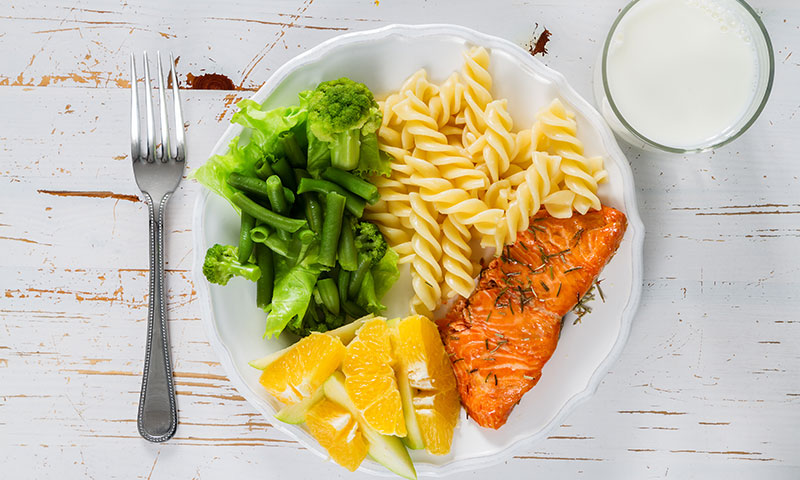Rise by Six: Your Daily Dose of Inspiration
Explore insights and stories that elevate your day.
Balanced Bites: Finding Your Food Sweet Spot
Discover the perfect balance of nutrition and indulgence at Balanced Bites. Find your food sweet spot and transform your eating habits today!
The Art of Portion Control: How to Find Your Perfect Balance
The art of portion control is a vital skill for maintaining a healthy lifestyle and achieving your dietary goals. As societies grapple with rising obesity rates, understanding how to find your perfect balance when it comes to food intake becomes essential. Start by educating yourself on appropriate serving sizes and recognizing the difference between a standard portion and what you might habitually consume. Consider using smaller plates and bowls to naturally limit your serving sizes, and practice mindfulness while eating to help you gauge your fullness signals more accurately.
One effective technique for mastering portion control is to utilize the plate method: fill half your plate with vegetables, a quarter with lean protein, and the remaining quarter with whole grains or starchy foods. This method not only helps you visualize the balance of food groups but also encourages you to incorporate a wide range of nutrients into your meals. Additionally, keeping track of your meals and snacks with a food diary can further enhance your awareness of portion sizes and eating habits, guiding you toward a healthier lifestyle.

Understanding Macronutrients: What Do You Need for a Balanced Diet?
Macronutrients are the essential nutrients that our bodies need in larger quantities to function properly. They comprise three main categories: carbohydrates, proteins, and fats. Each of these macronutrients plays a unique role in maintaining our overall health. Carbohydrates are primarily the body's main source of energy, while proteins are crucial for growth, repair, and maintenance of body tissues. Fats, often misunderstood, are necessary for hormone production, nutrient absorption, and providing a concentrated source of energy. Understanding the right balance of these macronutrients is key to achieving a balanced diet.
To achieve a balanced diet, it is important to consider the appropriate ratios of these macronutrients. A common guideline is:
- Carbohydrates: 45-65% of total daily calories
- Proteins: 10-35% of total daily calories
- Fats: 20-35% of total daily calories
Is Your Diet Too Restrictive? Signs You Need to Find Your Sweet Spot
Following a restrictive diet can often lead to feelings of deprivation and might even trigger unhealthy eating behaviors. If you find yourself constantly battling cravings or feeling guilty after consuming certain foods, it may be a sign that your diet is too strict. Additionally, emotional distress related to food choices can indicate that you need to reassess your approach. Here are some signs that your diet may be too restrictive:
- Constantly thinking about food
- Feeling irritable or anxious around meal times
- Experiencing fatigue or low energy levels
On the other hand, achieving a balanced relationship with food is crucial for both mental and physical health. If your diet lacks essential nutrients or includes extreme restrictions on food groups, it could lead to deficiencies. Listen to your body; if you notice signs of distress like digestive issues or frequent cravings, it may be time to find your sweet spot. Remember, a sustainable diet should promote wellness, not create a cycle of deprivation and guilt.